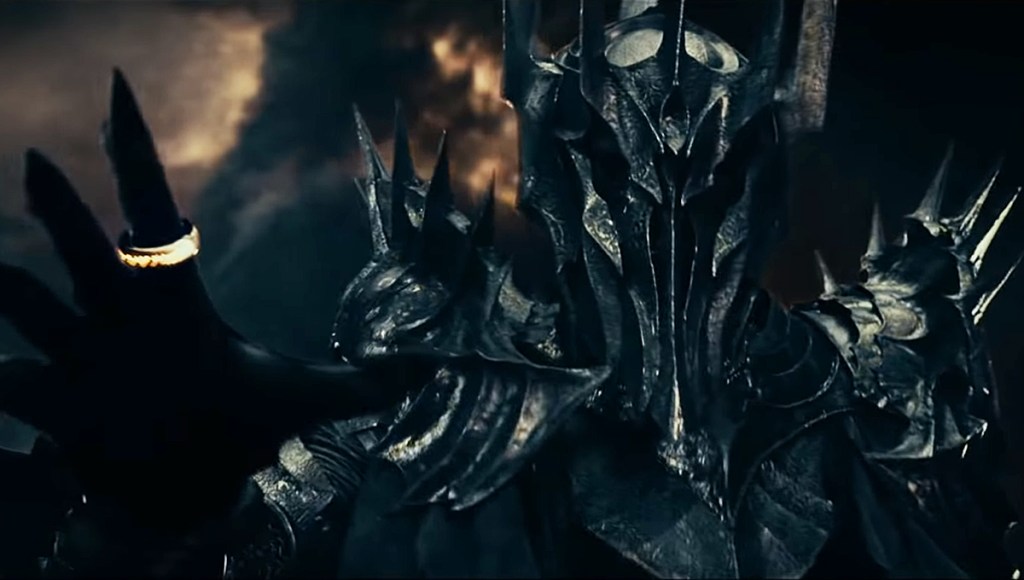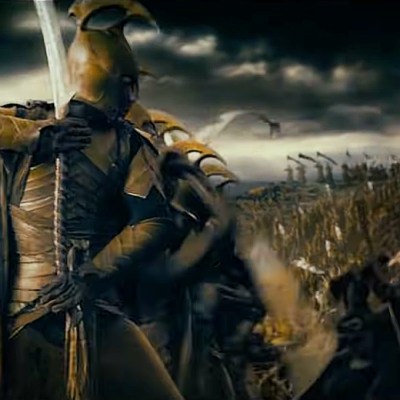Amazon’s The Lord of the Rings Series is Focusing its Massive Budget on Huge World-Building
When reports first surfaced back in early-2018 that Amazon’s untitled The Lord of the Rings television series bore a budget upwards of $1 billion, the entertainment industry and its fans did a collective double-take. Remember, this was two whole years before pandemic-era logistics—and heavy-hitting newcomers like Disney+ and HBO Max—elevated the status of streaming platforms from luxury to essential, and seemed like muscle-flexing by the retail giant to instill fear into the Netflixes and Hulus of the world. While the show’s price tag remains surreal to this day, Amazon Studios’ boss is reaffirming the wisdom of the decision.
Amazon Studios chief Jennifer Salke participated in a shared interview with some of the industry’s most influential women for THR, in which she fields a key question about the bountiful budget of The Lord of the Rings, which was preemptively renewed for a second season back in 2019. While it is unclear if the series—which will adapt lore from author J.R.R. Tolkien that predates the main novels’ setting by thousands of years—will be canonically connected to director Peter Jackson’s Oscar-winning The Lord of the Rings film trilogy and subsequent The Hobbit prequel trilogy, Salke believes the price tag is justified by its massive world-building scope. Moreover, she believes that the move has aged well compared to current strategies of the company’s competitors, notably Netflix, which dropped a whopping $469 million for exclusivity over two Knives Out sequel films.
“The market is crazy, as you saw with the Knives Out deal,” explains Salke. “This is a full season of a huge world-building show. The number is a sexy headline or a crazy headline that’s fun to click on, but that is really building the infrastructure of what will sustain the whole series.” Indeed, Salke’s validation of the company’s cutting of a sizable check occurs after more light was shed on The Lord of the Rings’ financials, revealing that the currently in-production inaugural season alone rung up to around $465 million; a notion that lines up with claims from the 2018 report that additional expenses for the exorbitant New Zealand-located production would raise Amazon’s initial bill from around half-a-billion to (perhaps even past) the $1 billion mark, cementing the project’s place as the most expensive television series ever made.

Indeed, the world that The Lord of the Rings intends to build—with Amazon’s immense coffers—will be vast, despite the fact that we’ve seen a substantial amount of it in Jackson’s beloved films. That’s because the series will take place during an unspecified time period in Middle Earth’s Second Age, which spanned 3,441 years of history for the planet Arda. Yet, despite the array of possible storylines that fit the wide-spanning age, the setting confirms that the show will take place at least 3,000 years before the storyline of Tolkien’s main novels, which started in 2941 of the Third Age with The Hobbit. Indeed, world-building will be necessary to bring about concepts confirmed for the series such as the southern island kingdom of Númenor, on which a race of long-lived humans (of which Aragorn is a descendant,) existed in apparent sublime splendor until the corruption of Sauron incited a resentment-wrought rebellion that angered the Valar (the Olympians of Tolkien lore), that culminated in the entire island sinking beneath the sea. Indeed, with Amazon having spent years teasing the plot with era-revealing maps of Middle Earth, a lot of work needed to be done to create this rendition of a familiar land that’s archaic to the era of the iconic main novels and films. Whether it proves to be billion-dollar-level work remains to be seen.
So, how does a company—even a borderline global retail monopoly like Amazon—get to a point in which the decision to drop around $465 million at the outset for a project seems like sound business? Well, according to Salke, such decisions are often incited by sentimental fever pitches, which, much like the stock market, can abruptly drive prices to stratospheric levels. “[It] is a crazy world and various people on this Zoom, mostly Bela [Netflix’s Bela Bejaria] and me, have been in bidding situations where it starts to go incredibly high,” confesses Salke. “There’s a lot of wooing and we have to make decisions on where we want to stretch and where we want to draw the line. As for how many people need to watch Lord of the Rings? A lot. (Laughs.) A giant, global audience needs to show up to it as appointment television, and we are pretty confident that that will happen.”
Contextually, HBO’s Game of Thrones, which was by far the most popular television series of the quasi-medieval genre, made headlines in 2019 for the $90 million it spent on the abbreviated, six-episode-spanning eighth and final season, which made it the most expensive television series in history on a per-episode basis (although, the ten-episode-spanning Season 6 cost $100 million). Yet, the onscreen woes of Westeros were never long for that title, since the story of Amazon’s gestating billion-dollar show was already a year old by the time Thrones aired its finale. Additionally, Amazon’s $465 million for The Lord of the Rings Season 1 even triumphs in an apples-to-apples comparison with the highest-grossing movie of all-time, 2019’s Avengers: Endgame, which worked off a $356 million budget, but went on to gross $2.8 billion globally. One has to wonder if Salke and her cohorts at Amazon Studios believe that Rings—widely beloved as the franchise may be—has an earnings potential that’s even remotely close to that.
That question, of course, could be answered—at least partially—as soon as the last quarter of 2021, which seems to be a feasible window for Amazon to premiere The Lord of the Rings pilot, which, under the direction of Jurassic World: Fallen Kingdom’s J.A. Bayona, was completed several months ago. However, fans remain concerned over its appointment of an untested pair of showrunners in J.D. Payne and Patrick McKay; a notion exacerbated by recent reports of behind-the-scenes tumult over clashing visions for translating Tolkien to television. In what has become a red flag to fans, the once-auspicious tenure of Game of Thrones writer Bryan Cogman came to an abrupt end even before the pilot wrapped, and key consultants like renown Tolkien scholar Tom Shippey reportedly left in an uproar. Additionally, March’s controversial exit of cast member Tom Budge might have left a dent in its nevertheless-impressive onscreen ensemble as production continues on the series.
Regardless, fans of the beloved IP remain excited to see how Amazon’s spendthrift habits will make The Lord of the Rings manifest in streaming small screen form. As of now, the company has yet to even reveal a proper title for the series, much less unveil a trailer or drop a release date. However, as we head to the middle of 2021, a surprise on this front seems destined to occur soon enough.
The post Amazon’s The Lord of the Rings Series is Focusing its Massive Budget on Huge World-Building appeared first on Den of Geek.
From https://www.denofgeek.com/tv/amazon-lord-of-the-rings-budget-world-building/



